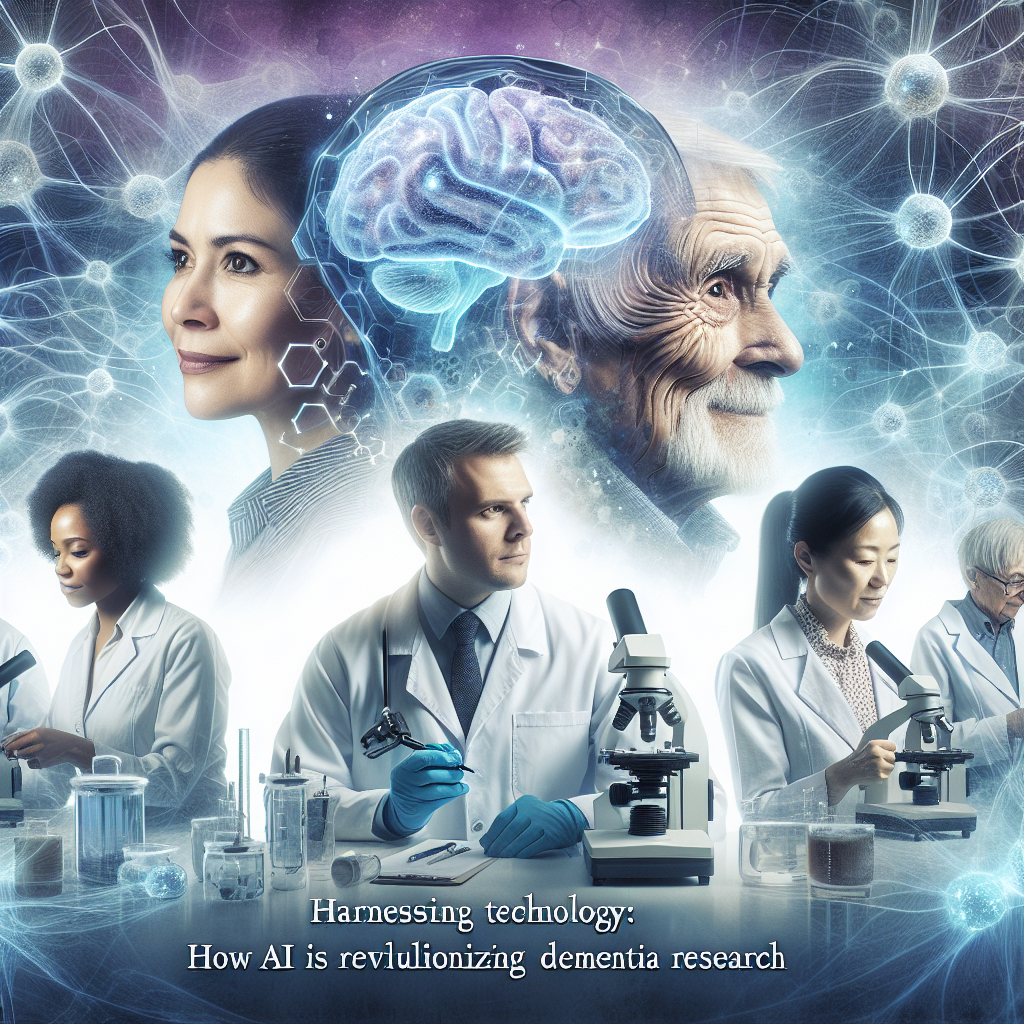
Introduction
As the global population ages, the urgency for effective treatments and early interventions for dementia has never been more pronounced. Dementia affects millions worldwide, leading to emotional, physical, and economic burdens on families and healthcare systems alike. Enter Artificial Intelligence (AI) — a game-changer poised to transform dementia research. Harnessing Technology: How AI is Revolutionizing Dementia Research isn’t just a buzzword; it’s a reality that could change the course of our approach to this debilitating condition. In this article, we’ll explore how AI is reshaping the landscape of dementia research, from early diagnosis to personalized treatment plans, showcasing groundbreaking innovations and tangible successes.
The Promise of AI in Dementia Research
Setting the Stage: The Current State of Dementia Research
Dementia is a complex syndrome characterized by a decline in cognitive function, impacting daily living and quality of life. Traditional research methods have been essential, yet they often fall short in terms of speed, scalability, and predictive power. The introduction of AI brings a new dimension to this field, enabling researchers to process vast datasets, identify patterns, and make predictions that were once inconceivable.
The Evolution of AI: From Theory to Practice
AI technologies, including machine learning and natural language processing, have advanced significantly over the past decade. These innovations allow for quicker data analysis, which is pivotal in a field like dementia research where timely interventions can drastically alter outcomes.
Harnessing Technology: Real-World Applications of AI
Case Study 1: Early Detection Through AI Algorithms
One promising application of AI is in the early diagnosis of dementia. Researchers at Stanford University developed an AI algorithm that analyzes MRI scans to detect early signs of Alzheimer’s disease with surprising accuracy. The algorithm was able to identify brain changes associated with dementia much earlier than conventional methods.
Analysis: This case study highlights the power of AI in diagnosing conditions that typically go unnoticed in the early stages. Early intervention can lead to better management of symptoms and improved quality of life.
Case Study 2: Personalized Treatment Plans via Machine Learning
Another fascinating application lies in creating personalized treatment plans for dementia patients. A study published in the Journal of Alzheimer’s Disease demonstrated the efficacy of machine learning models that analyzed genetic, lifestyle, and medical history data to tailor individualized treatment options.
Analysis: Personalization in treatment is crucial for enhancing patient outcomes, exemplifying how Harnessing Technology: How AI is Revolutionizing Dementia Research leads to tailored healthcare solutions rather than a one-size-fits-all approach.
Case Study 3: Enhancing Caregiving with AI Assistants
AI is not limited to research alone; it has vital applications in caregiving as well. Research from the University of California, Los Angeles (UCLA) introduced AI-powered virtual assistants that help caregivers manage daily routines for dementia patients. These assistants provide reminders for medication, schedule activities, and even monitor changes in behavior.
Analysis: The integration of AI technology into caregiving helps to alleviate the burden on caregivers, allowing them to focus more on emotional support and less on administrative tasks.
Harnessing Big Data: The Role of AI in Research
Mining Research Databases with AI
AI allows researchers to sift through massive databases of clinical trials, scientific papers, and patient records. The University of Toronto developed an AI system that can analyze research papers and extract relevant findings, thereby accelerating the literature review process.
Data Table: The Impact of AI on Research Efficiency
| Task | Traditional Method (Hours) | AI Method (Hours) |
|---|---|---|
| Literature Review | 40 | 5 |
| Data Analysis | 60 | 10 |
| Report Generation | 20 | 2 |
Predicting Disease Progression
Another fascinating avenue is using AI to predict disease progression. Machine learning models developed by researchers at MIT can analyze patient data to foresee how quickly cognitive decline may occur, enabling clinicians to plan better intervention strategies.
Ethical Considerations in AI and Dementia Research
As we dive deeper into Harnessing Technology: How AI is Revolutionizing Dementia Research, ethical considerations become paramount. The use of AI in healthcare raises questions of data privacy, algorithmic bias, and the need for transparency in AI decision-making processes. Researchers must navigate these challenges responsibly to ensure the technology benefits everyone equitably.
Ensuring Data Privacy and Security
With AI’s reliance on vast amounts of personal data, protecting patient confidentiality is crucial. Implementing robust cybersecurity measures will be vital in mitigating risks associated with data breaches.
Addressing Algorithmic Bias
Bias in algorithms can lead to disparities in how AI systems function for different demographics. Continuous monitoring and updates to algorithms are essential to ensure fairness and accuracy in predictions and diagnoses.
Future Directions: What Lies Ahead?
The future of dementia research holds immense promise as technologies continue to evolve. The integration of AI with other technologies, such as blockchain for secure data sharing, could further enhance research capabilities.
Collaborative Research Efforts
Collaboration among tech companies, academic institutions, and healthcare providers will play a critical role in pushing the boundaries of what AI can achieve in dementia research. Open-source platforms may foster innovation and expand the diversity of solutions available.
A Call to Action for Stakeholders
To effectively harness AI in dementia research, stakeholders must commit to ongoing education, ethical standards, and collaborative efforts. Increasing funding for AI-related dementia studies will be crucial in translating these innovations into real-world applications.
Conclusion
In summary, Harnessing Technology: How AI is Revolutionizing Dementia Research is not just a future aspiration—it’s happening now. From early diagnosis to personalized treatment and improved caregiving, AI’s role in dementia research is invaluable. By pursuing innovative technologies and fostering collaborative environments, we can unlock new avenues for understanding and treating this complex condition. As stakeholders in this critical conversation, let’s commit to working together to pave the way for a future where dementia care is more effective, compassionate, and innovative.
FAQs
1. How is AI used in diagnosing dementia?
AI algorithms analyze imaging data and clinical records to identify signs of dementia early on, often with more accuracy than traditional methods.
2. Can AI personalize treatment plans for dementia patients?
Yes, machine learning models can analyze individual patient data to create tailored treatment options that meet specific needs.
3. What ethical concerns are associated with AI in dementia research?
Concerns include data privacy, algorithmic bias, and the need for transparency in how AI systems make decisions.
4. Are there any successful case studies of AI in dementia research?
Yes, several studies have demonstrated success in early diagnosis, personalized treatment, and caregiving assistance using AI technologies.
5. What is the future of AI in dementia research?
The future involves collaboration between technology and healthcare sectors, continued innovation, and a focus on ethical standards to ensure equitable benefits for all patients.
By embracing the transformative power of AI, we can make significant strides in understanding and managing dementia, ultimately enhancing the quality of life for millions.














